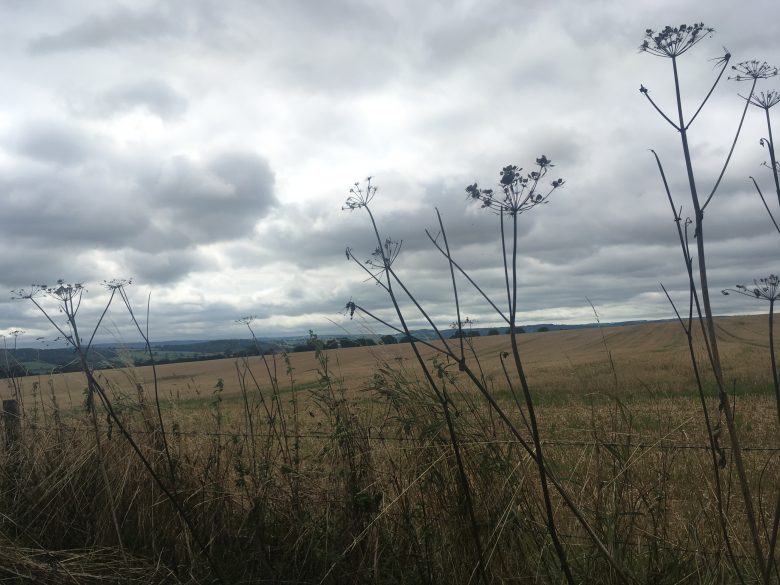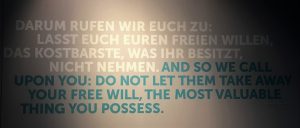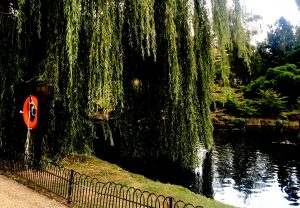After I read Rebecca Solnit’s A Field Guide to Getting Lost, I wanted to write like her. I wanted to emulate her lyrical and yet concise language, to follow her twisting train of thought through the labyrinth to its surprising and yet inevitable conclusion. I went on to read Men Explain Things to Me and The Mother of All Questions in big gulps, letting the words run through me and wishing I could hold onto them. I have been paused partway through Wanderlust for months, its pages denser perhaps than the others with references, connections across centuries all centered on walking. But I am excited to slip back in – it’s the only physical book I’ve brought with me for my semester abroad.
Solnit’s writing is smart, her political insight incisive and still hopeful. Reading her I see how far women have come and what still holds us back. There’s an elegance mixed with almost bluntness that I envy. “Harvey Weinstein is Hillary Clinton’s fault, we have learned from many sources,” begins her piece on Weinstein and all the other things that are not men’s fault. She goes to the heart of the matter: We want someone to blame, and women are always to blame, aren’t they? At least if you’re a powerful man taken down by a woman who says, Enough, with a bitchy tone and a resting bitch face.
Solnit demands more for us and traces the path from casual sexism to rape with a pen that can’t be erased. Her words flow from one page to the next and bring you to a new place where something you haven’t thought yet is. I am still learning how to be a feminist, at age 30, how to make sure my blinders are off so that I see intersectionally instead of narrowly. Solnit lifts others’ voices with her own platform, her spot firmly set at the heart of the Resistance as one of its voices.
Before Solnit there have been other writing icons. With my last blog I tried to strike the conversational tone of my favorite travel memoirs, chatty and personal with a sense of humor. Sometimes I was successful. My favorite compliment from a friend was that reading my blog was like sitting down with me for a chat over cocoa. And sometimes I missed my mark, writing more of a “here’s what I did” post than one that told anyone what I thought or felt about it.
Before that conversational tone there was Madeleine L’Engle, whose nonfiction gave me words for things I’d felt but hadn’t known and whose fiction gave me images for those feelings. When someone asked me a while back for an example of great writing I suggested A Circle of Quiet, the first of her Crosswicks journals, in which Madeleine talks a lot about her writing and her writing life. She also talks about Christianity and spirituality, like she does in most of her writing, so the book isn’t for everyone, though her messages of inclusion and mercy and community and art, in a time as turbulent as our own, have always resonated with me. For a long time, I wanted to write like Madeleine.
I suggested A Circle of Quiet to my friend because the writing in it is lovely. Which is not a helpful description, so let me explain what I mean. My mom liked a novel she was reading recently but something about the writing style just… caught at her somehow. She didn’t feel it was badly written, but she noticed the writing. I told her there are many reasons I don’t like literary fiction (confession: I haven’t read that much of it), and one of them is that tendency for the writing to love itself so much that if it were a table you were running your finger across, you’d get a splinter. Or you’d get your fingertip caught in some interesting but unnecessary carved whorl, just long enough to throw you out of the story this table is a metaphor for.
There’s a reason I don’t do metaphors very often.
Good writing, to me, pulls you along with it. You absorb the ideas and the thoughts and it’s so smooth and beautiful that you barely notice it, so caught up in the story that’s being spun for you that you don’t notice any particular word, you’re just right there, with the writer, following along. Good writing, like Madeleine’s, is lovely without being ostentatious.
(Recommendations of literary novelists who fit this description are of course welcome!)
My posts here since last spring are more introspective than my NYC posts and they don’t quite feel like a chat over cocoa – though I’ve definitely talked about some of these things with friends. The Solnit influence is there, in the style and in the subject matter, and I don’t think I’ll ever stop wanting to write like Madeleine. But there are threads of humor (and good humor) in their voices and I think I’ve become a little too serious in my own.
In person I’m always trying to walk that line of being the friendly, cheerful, even bubbly (ugh) person everyone meets me as and also showing the serious, thoughtful person my friends know well. The thoughtful side seems to have no trouble taking over when my fingers are on the keys and a thousand words are at their disposal. Oops. My first entry in my long-running daily journal was, at sixteen, super formal and fairly pretentious. That journal soon devolved into what most of my journals contain, the “here’s what I did” entries that I try to avoid on my blog.
But my voice is still developing, I’ve made progress. The only way to do it is to keep writing. So watch this space for posts about all the adventures I plan to have in Berlin and beyond during my semester abroad. I can’t promise not to get too introspective, and I can’t promise that you won’t read at least one entry of “here’s what I did”. But I do promise to show you where I go, and what I think about it, and I hope to bring you somewhere you’ve never been and maybe even give you words for things you’ve felt but haven’t known how to say.
Okay, that last one may be a stretch, but I can promise you pretty pictures. That counts for something, doesn’t it?




